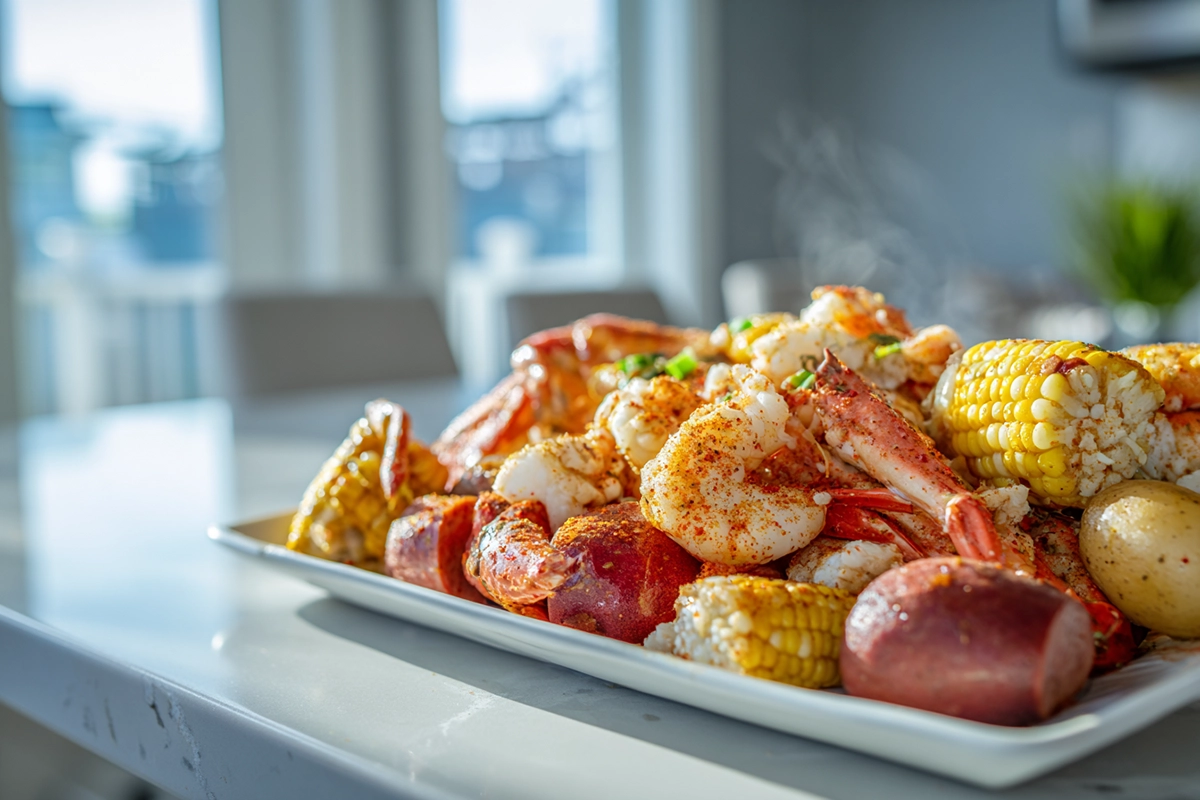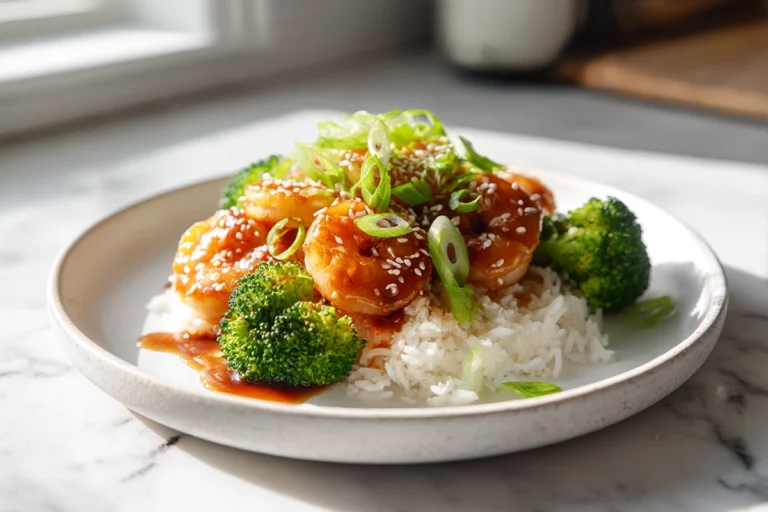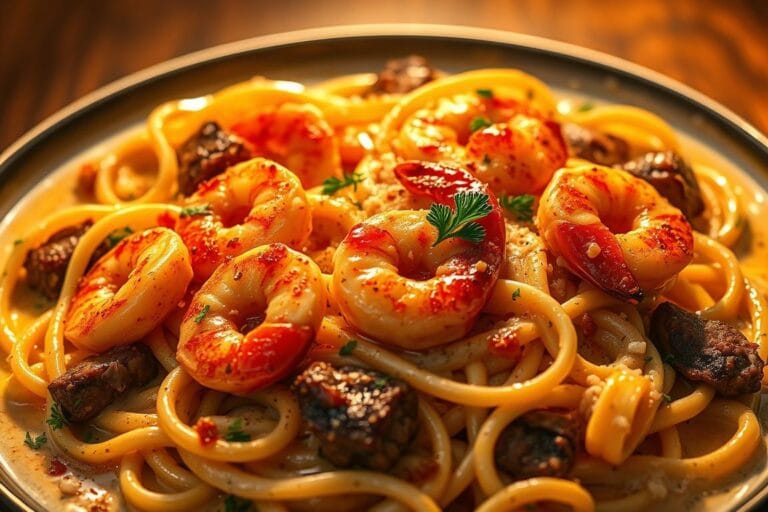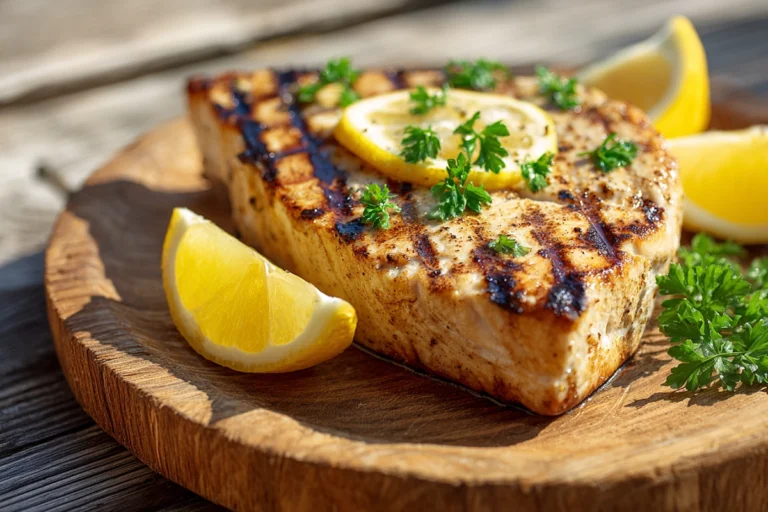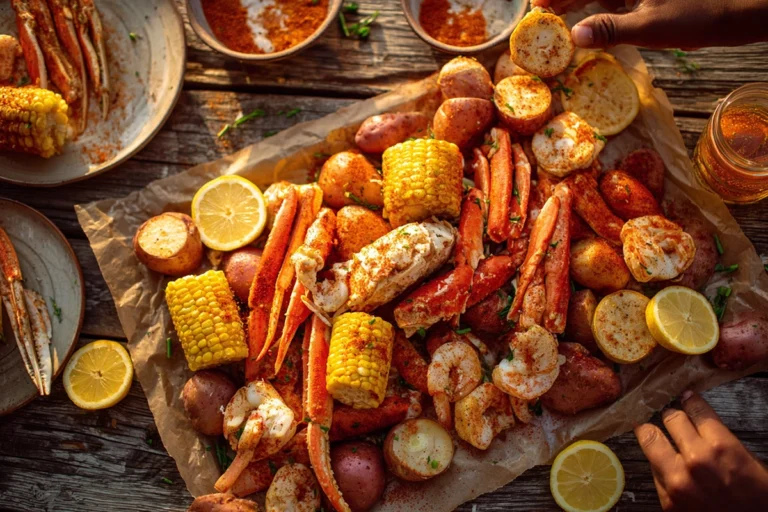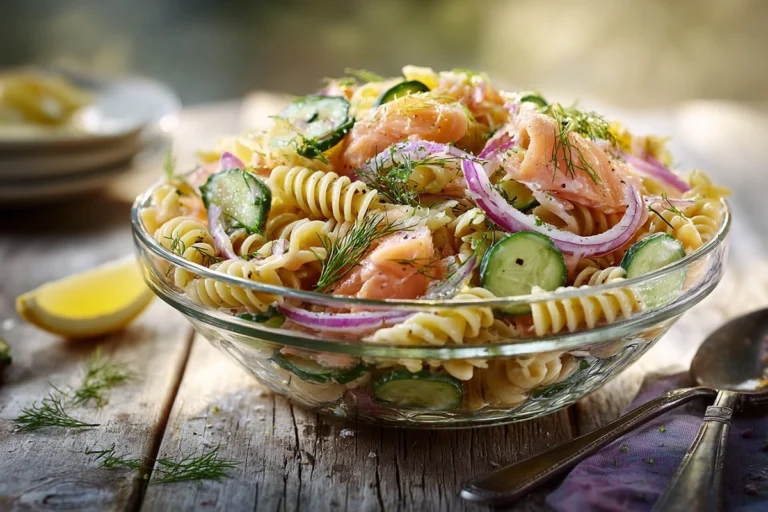Seafood Boil Seasoning: How to Make the Ultimate Homemade Blend
When the scent of steaming seafood, buttery corn, and savory spices fills the air, you know you’ve stumbled upon something special — the magic of a seafood boil. For me, that magic always starts with the seafood boil seasoning. This is the essence of any dish, a fragrant concoction that can take fresh shrimp, crab, or crawfish and turn them into a worthy meal around which to gather.
I grew up in a coastal town, so the seafood boiled was not just dinners but events. Neighbors would show up in backyards, pots would bubble away on propane burners, and the seasoning was the closely held secret of most people. Over the years, I’ve experimented with store-bought blends, crafted my own spice mix, and learned exactly how to get that signature balance of heat, citrus, and herbs.
If you’ve ever wanted to create that same unforgettable flavor at home — whether for a backyard bash or a cozy family dinner — this guide will walk you through everything you need to know about seafood boil seasoning, from its roots in Southern tradition to making your own blend.
Table of Contents
What Is Seafood Boil Seasoning?
Seafood boil seasoning is a spice blend developed to introduce bold, aromatic flavors to shellfish, vegetables and, in some cases, sausage. Typically, it is boiled in liquid with the rest of the ingredients to allow for flavors to infuse each ingredient.
The seasoning’s profile is a harmonious mix of:
- Spices for depth and heat (paprika, cayenne, mustard seed)
- Herbs for fragrance (thyme, oregano, bay leaves)
- Citrus notes from lemon peel or zest to brighten the seafood
- Aromatics like garlic and onion powder to round out the flavor
Whether you’re making a Cajun-style crawfish boil or a Maryland crab feast, the seasoning is what ties the whole experience together.
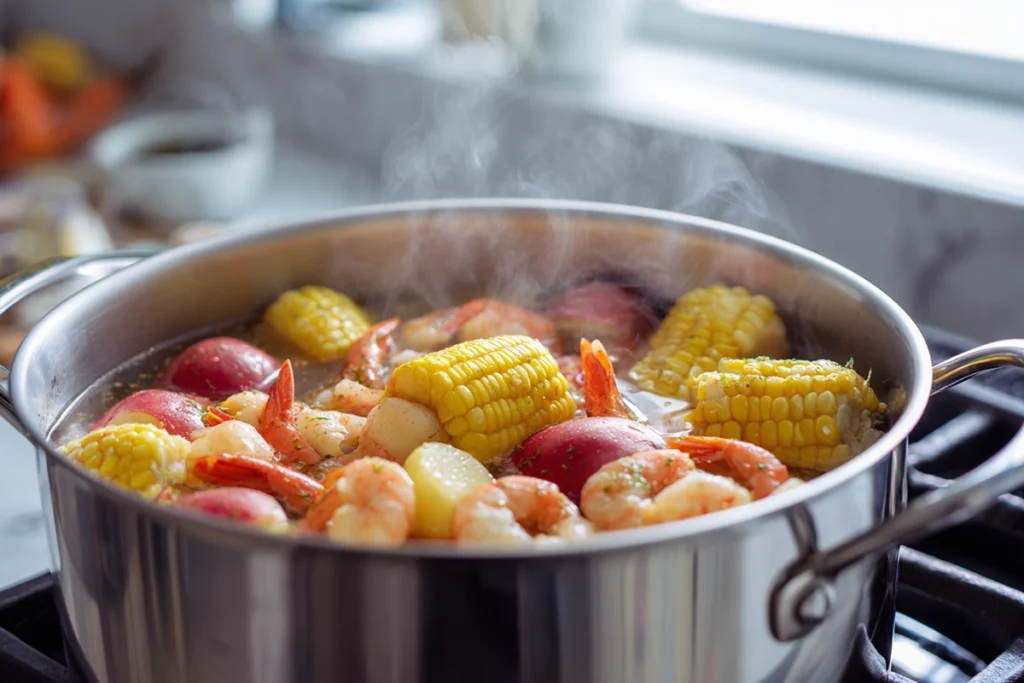
The History and Cultural Roots of Seafood Boil Seasoning
Seafood boils are part of Louisiana’s Cajun and Creole heritage. As French Acadians moved to Louisiana in the 18th century, they brought their cooking traditions, which became flavored using local ingredients and the cultural influences present. In time, seasoning blends became the basis of seafood boils – evolving as communities experimented with different spices and different cooking styles.
- Cajun-style boils lean toward earthy spices and bold heat.
- Creole boils tend to incorporate more herbs and sometimes tomato-based elements.
- Maryland-style crab boils are milder but heavy on Old Bay seasoning, celery seed, and mustard powder.
Today, seafood boil seasoning is embraced far beyond the Gulf Coast. It’s now a staple in seafood restaurants from Seattle to Miami, with each region putting its own spin on the spice mix.
Essential Ingredients in a Classic Seafood Boil Seasoning
A well-balanced seafood boil seasoning usually contains a mix of heat, aromatics, and freshness.
| Category | Examples | Flavor Contribution |
|---|---|---|
| Heat | Cayenne pepper, chili flakes | Adds spice and warmth |
| Earthy depth | Paprika, smoked paprika | Rich, smoky base |
| Herbal | Thyme, oregano, parsley flakes | Fragrance and freshness |
| Aromatics | Garlic powder, onion powder | Savory foundation |
| Zesty | Lemon peel, citrus zest | Brightness |
| Salty | Celery salt, kosher salt | Enhances overall flavor |
| Unique touch | Mustard seed, bay leaf powder | Complexity |
Tip: When making your own blend, use freshly ground spices for a more vibrant flavor.
Choosing Between Store-Bought and Homemade Seasoning
Both options have their place, depending on time, budget, and the flavor you’re after.
Store-Bought Seasoning
- Pros: Convenient, consistent, widely available.
- Cons: May contain anti-caking agents or more salt than desired.
Popular U.S. brands include Old Bay, Zatarain’s, and Slap Ya Mama — all available at most grocery stores or online.
Homemade Seasoning
- Pros: Fully customizable, fresher taste, control over salt and spice levels.
- Cons: Requires more prep time and access to multiple spices.
If you host seafood boils regularly, crafting your own mix ensures you can tweak the flavors to suit your guests.
How to Make Your Own Seafood Boil Seasoning at Home
Here’s a tried-and-true recipe for a homemade seafood boil seasoning that serves about 10–12 people.
| Ingredient | Amount |
|---|---|
| Paprika | 3 tbsp |
| Smoked paprika | 2 tbsp |
| Cayenne pepper | 1 tbsp |
| Garlic powder | 2 tbsp |
| Onion powder | 2 tbsp |
| Dried thyme | 1 tbsp |
| Dried oregano | 1 tbsp |
| Mustard powder | 1 tbsp |
| Celery salt | 1 tbsp |
| Lemon zest (dried) | 2 tsp |
| Bay leaf powder | 1 tsp |
| Black pepper | 1 tbsp |
| Kosher salt | 2 tbsp |
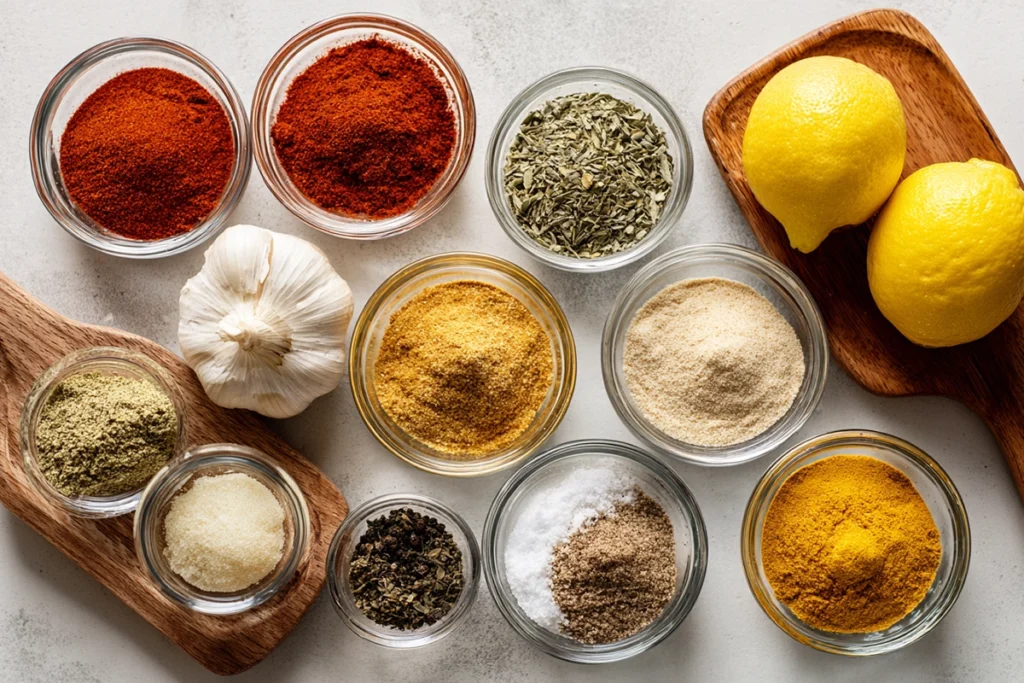
Instructions:
- Combine all ingredients in a bowl and whisk until evenly mixed.
- Store in an airtight container in a cool, dark place for up to 6 months.
- Use about ½ cup per gallon of boiling water for a seafood boil.
You can easily double or halve the recipe depending on your crowd size.
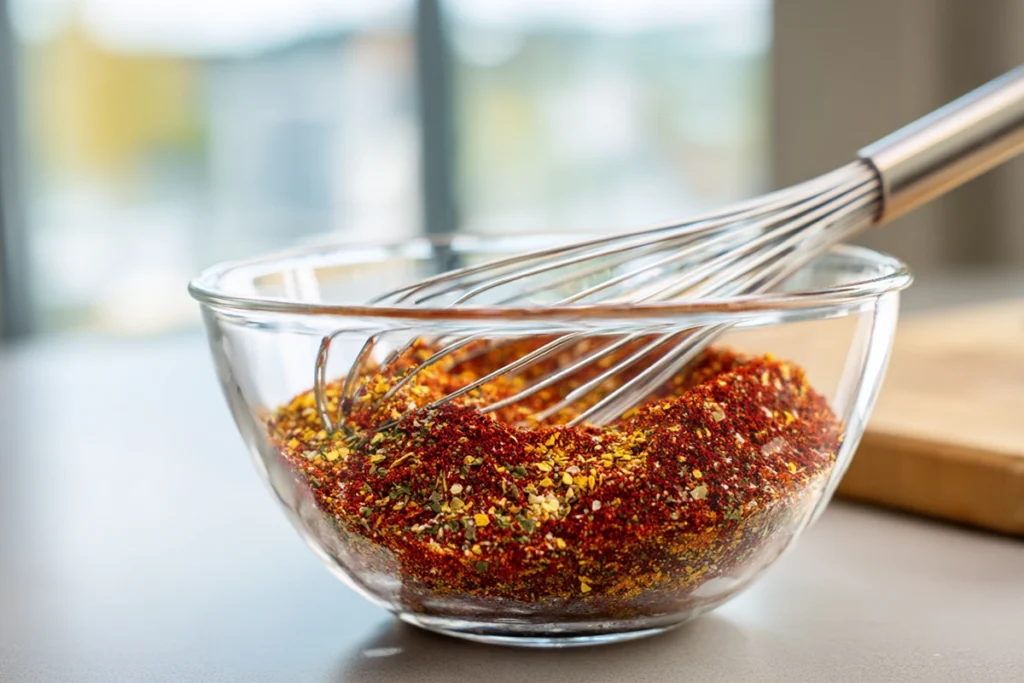
Best Seafood for a Boil Using This Seasoning
The beauty of seafood boil seasoning is its versatility. It pairs wonderfully with:
- Shrimp – Quick cooking, absorbs flavor fast.
- Crab – Sweet meat balances spicy seasoning.
- Crawfish – Traditional choice in Cajun boils.
- Lobster – Luxurious twist for special occasions.
Cooking tip: Start with denser seafood (crab, lobster), then add quicker-cooking items like shrimp toward the end to avoid overcooking.
How to Use Seafood Boil Seasoning for the Perfect Boil
To get the most out of your seasoning, think about when to add it:
- Add the bulk of the seasoning directly to the boiling water before the seafood goes in.
- Reserve a small amount to sprinkle over seafood after draining for an extra kick.
- Pair with a garlic butter dipping sauce for layers of flavour.
For tools, a large stock pot or outdoor propane burner is ideal for cooking large batches evenly.
Flavor Variations and Regional Twists
This is the exciting part of seasoning—experimenting:
- Cajun-style: More cayenne, smoked paprika, less citrus.
- Creole-style: Add basil, thyme, and bay leaves for a herby balance.
- Lemon-Garlic: Double the lemon zest and add granulated garlic for a bright, savoury punch.
- Smoky BBQ Fusion: Incorporate chipotle powder for a Southern barbecue aroma.
Storing and Preserving Your Seasoning Blend
Homemade seasoning stays freshest when:
- Stored in a glass jar with a tight lid.
- Kept away from light and moisture.
- Labelled with the date of preparation.
Shelf life:
- Homemade seasoning: ~ 6 months
- Store-bought: 12–18 months (check packaging)
Serving Suggestions and Side Dishes
Classic seafood boil sides soak up flavour beautifully:
- Corn on the cob boiled in seasoned water
- Red potatoes for a hearty bite
The same seasoning can enhance coleslaw, potato salad, or even grilled vegetables.
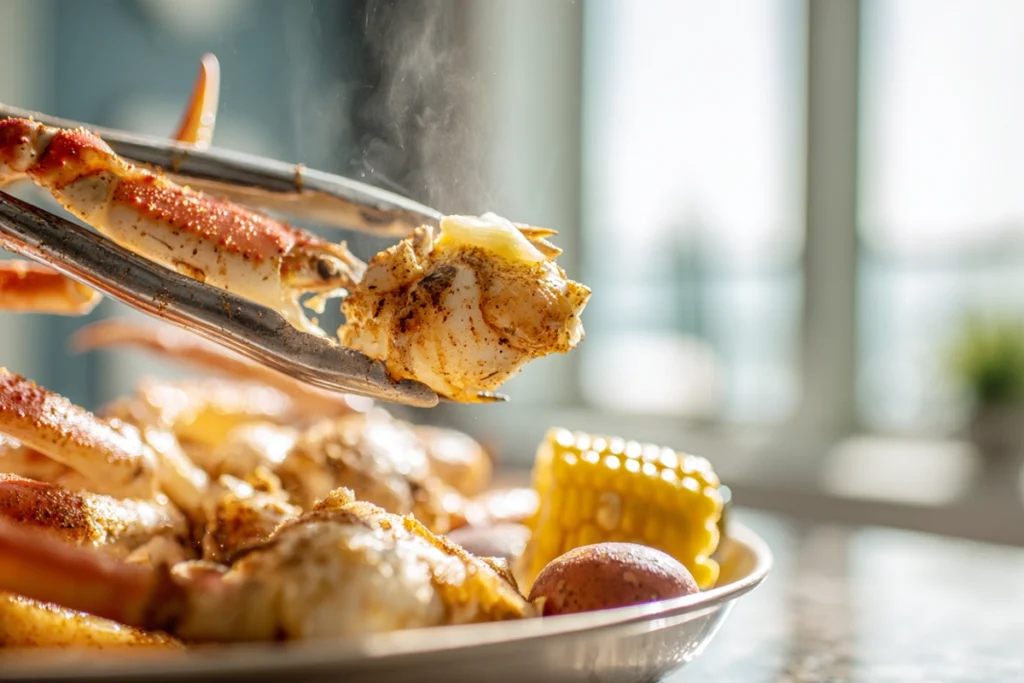
Common Mistakes to Avoid
- Overseasoning: Too much spice can overpower seafood’s natural sweetness.
- Adding seafood too early: Overcooked shellfish becomes rubbery.
- Ignoring salt levels: Many store blends are high in salt; adjust accordingly.
FAQ
Can you use seafood boil seasoning for other dishes?
Yes, seafood boil seasoning works great on roasted vegetables, grilled chicken, or even popcorn for a spicy kick.
How much seafood boil seasoning should I use per gallon of water?
A good rule is about 1/2 cup of seasoning per gallon of boiling water, adjusting to taste.
Is seafood boil seasoning the same as Old Bay?
No, Old Bay is a specific brand with its own flavor profile, while seafood boil seasoning can vary by recipe or region.
Can I make seafood boil seasoning without cayenne pepper?
Yes, you can skip cayenne or replace it with smoked paprika for a milder, smoky flavor.
Does seafood boil seasoning have gluten?
Most homemade blends are gluten-free, but always check store-bought labels for hidden additives.
How long does homemade seafood boil seasoning last?
Stored in an airtight container in a cool, dark place, it lasts up to 6 months without losing flavor.
Can I use seafood boil seasoning for grilling shrimp?
Yes, toss shrimp in oil and seasoning before grilling for bold, smoky flavor.
What’s the difference between Cajun and Creole seafood boil seasoning?
Cajun blends are typically spicier with more paprika and cayenne, while Creole blends use more herbs like thyme and oregano.
Can seafood boil seasoning be low sodium?
Yes, simply reduce or omit the salt in your homemade mix and season to taste during cooking.
Can I add butter to seafood boil seasoning?
Yes, mixing the seasoning into melted butter creates a rich dipping sauce for cooked seafood.
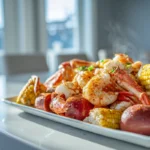
Seafood Boil Seasoning
- Total Time: 10 minutes
- Yield: 10–12 servings (seasoning for a large seafood boil) 1x
Description
A bold and aromatic seafood boil seasoning blend featuring paprika, cayenne, garlic, herbs, and citrus. Perfect for shrimp, crab, lobster, and crawfish boils, bringing authentic Southern flavor to your table.
Ingredients
3 tbsp paprika
2 tbsp smoked paprika
1 tbsp cayenne pepper
2 tbsp garlic powder
2 tbsp onion powder
1 tbsp dried thyme
1 tbsp dried oregano
1 tbsp mustard powder
1 tbsp celery salt
2 tsp dried lemon zest
1 tsp bay leaf powder
1 tbsp black pepper
2 tbsp kosher salt
Instructions
Combine all ingredients in a mixing bowl and whisk until evenly blended.
Transfer seasoning mix to an airtight container and store in a cool, dark place for up to 6 months.
Use about ½ cup of seasoning per gallon of boiling water for a seafood boil. Adjust the amount to taste.
Notes
For a milder blend, reduce or omit cayenne pepper.
Use freshly ground spices for the most vibrant flavor.
Can also be used to season roasted vegetables, grilled meats, or popcorn.
- Prep Time: 10 minutes
- Cook Time: 0 minutes
- Category: Seasoning & Spice Mixes
- Method: No-cook preparation
- Cuisine: Cajun / Southern American
Keywords: seafood boil seasoning, Cajun boil recipe, homemade spice blend, crawfish boil seasoning, shrimp boil spices, Old Bay alternative, Creole seafood boil
What Are Our Readers Saying?
There are no reviews yet. Be the first one to write one.

